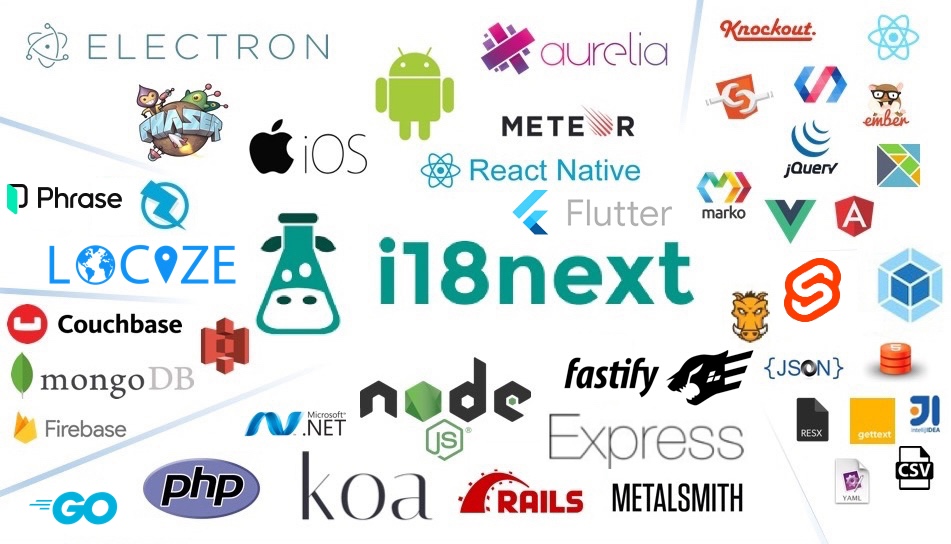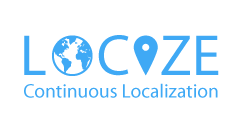Framework Compatibility
- i18next:
i18next is also framework-agnostic and can be used with various frameworks including React, Angular, Vue, and even backend environments like Node.js. Its versatility allows developers to implement internationalization across different parts of their application stack.
- react-i18next:
react-i18next is built specifically for React applications, offering hooks and components that simplify the integration of i18next with React's component model. It is optimized for React's rendering lifecycle, making it easy to manage translations in a React context.
- react-intl:
react-intl is designed for React applications and provides a set of components and APIs for internationalization. It leverages the ECMAScript Internationalization API, making it a suitable choice for applications that require rich formatting capabilities for messages, dates, and numbers.
- vue-i18n:
vue-i18n is specifically built for Vue.js applications, integrating seamlessly with Vue's reactivity system. It provides features tailored for Vue components, making it the best choice for developers working within the Vue ecosystem.
- @lingui/core:
@lingui/core is designed to be framework-agnostic, allowing it to be integrated into any JavaScript project regardless of the framework used. This flexibility makes it a great choice for developers who want a simple yet powerful i18n solution without being locked into a specific framework.
- next-i18next:
next-i18next is specifically tailored for Next.js applications, providing a seamless integration that leverages Next.js features like server-side rendering and static site generation. This makes it the go-to choice for developers using the Next.js framework.
Translation Management
- i18next:
i18next provides a powerful translation management system that supports features like nested translations, pluralization, and interpolation. It allows developers to organize translations in a flexible way, making it suitable for complex applications with varying translation needs.
- react-i18next:
react-i18next enhances translation management in React applications by providing hooks and components that facilitate the retrieval and rendering of translations. It supports features like automatic language detection and translation caching, streamlining the process of managing translations in a React context.
- react-intl:
react-intl focuses on providing a rich set of formatting capabilities for messages, dates, and numbers. It allows developers to manage translations effectively while ensuring that the content is displayed correctly based on the user's locale, making it ideal for applications with diverse formatting requirements.
- vue-i18n:
vue-i18n provides a straightforward API for managing translations in Vue.js applications. It allows developers to define translations in a structured way and integrates seamlessly with Vue's reactivity system, making it easy to update translations dynamically.
- @lingui/core:
@lingui/core offers a simple and effective way to manage translations through its message extraction and catalog management features. It allows developers to easily extract translatable strings from their code and manage translation files in a structured manner.
- next-i18next:
next-i18next simplifies translation management in Next.js applications by providing a straightforward setup for handling translations and locales. It integrates well with Next.js routing, allowing for easy management of language-specific content based on the user's locale.
Performance
- i18next:
i18next is designed with performance in mind, offering features like translation caching and lazy loading of translation resources. This ensures that applications load quickly and efficiently, even when dealing with extensive translation files.
- react-i18next:
react-i18next is optimized for React's rendering lifecycle, ensuring that translations are rendered efficiently without unnecessary re-renders. It supports features like memoization and context-based updates to enhance performance in React applications.
- react-intl:
react-intl is built on the ECMAScript Internationalization API, which is optimized for performance. It allows for efficient formatting of messages, dates, and numbers, ensuring that applications remain responsive even with complex formatting requirements.
- vue-i18n:
vue-i18n is designed to work seamlessly with Vue's reactivity system, ensuring that translations are updated efficiently without causing unnecessary re-renders. This optimization helps maintain application performance, especially in dynamic content scenarios.
- @lingui/core:
@lingui/core is lightweight and optimized for performance, ensuring that applications remain responsive even when handling large translation catalogs. Its design minimizes overhead, making it suitable for performance-sensitive applications.
- next-i18next:
next-i18next leverages Next.js's performance optimizations, such as static site generation and server-side rendering, to deliver translations efficiently. This results in faster page loads and improved user experience in Next.js applications.
Community and Ecosystem
- i18next:
i18next boasts a large and active community, with numerous plugins and integrations available for various frameworks and use cases. This extensive ecosystem provides developers with a wealth of resources and support for implementing internationalization in their applications.
- react-i18next:
react-i18next has a strong community within the React ecosystem, with many resources, tutorials, and plugins available. Its popularity among React developers ensures ongoing support and continuous improvement of the library.
- react-intl:
react-intl is part of the FormatJS ecosystem, which has a robust community focused on internationalization and localization. This community provides valuable resources and support for developers looking to implement internationalization in their React applications.
- vue-i18n:
vue-i18n has a dedicated community within the Vue.js ecosystem, offering resources, plugins, and support tailored specifically for Vue developers. This community-driven approach ensures that vue-i18n remains relevant and up-to-date with the latest Vue features.
- @lingui/core:
@lingui/core has a growing community and ecosystem, providing resources and plugins that enhance its functionality. Its flexibility and framework-agnostic nature attract a diverse range of developers, contributing to its ongoing development and support.
- next-i18next:
next-i18next benefits from the Next.js community, which is rapidly growing. As Next.js becomes more popular, the support and resources for next-i18next continue to expand, making it a reliable choice for Next.js developers.








